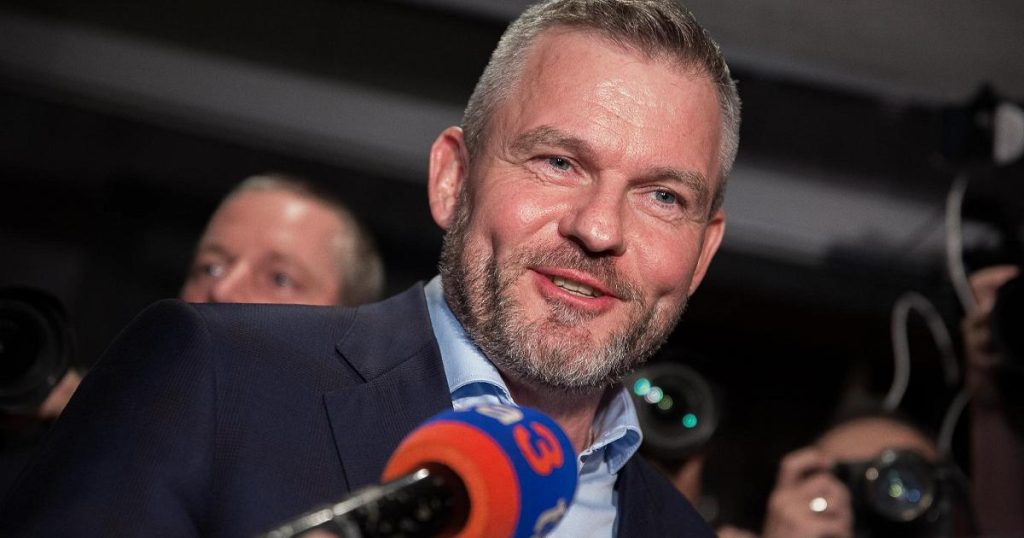Peter Pellegrini, the new president of Slovakia, has stated that the country will not change its policy towards the European Union and NATO, but will act with greater independence by “looking in all directions.” He won the presidential runoff with 53.12% of the votes against his rival, the pro-Western former Foreign Minister Ivan Korcok. Pellegrini emphasized that Slovakia will voice its opinions in these organizations to oppose decisions that could have negative impacts on the country, its economy, or its people. This was his first statement after the election victory.
The President of the European Commission, Ursula von der Leyen, congratulated Pellegrini on his victory and wished him success, expressing her eagerness to work on important challenges together. Pellegrini also received well-wishes from allies like Hungarian Prime Minister Viktor Orban and Serbian President Alexandar Vucic, who oppose sending military aid to Ukraine and are sensitive to influences from Moscow. Orban praised Pellegrini’s victory as a win for Slovakian people and peace supporters in Europe, while Vucic expressed interest in strengthening bilateral cooperation with Slovakia.
Pellegrini ran as a “peacemaker” in the election, positioning himself as someone who prioritizes stability and peace in Europe, as opposed to advocating for sending arms and aid to Kiev. He warned that Slovakia should not passively accept orders from Washington and Brussels, signaling a potential shift towards a more pro-Russian stance in line with Hungary. Pellegrini, who will serve for five years, has been a key figure in previous governments led by Robert Fico and is expected to work closely with Fico, who has been accused of “orbanizing” Slovakia.
Critics claim that Fico is following in the footsteps of Hungarian Prime Minister Orban by making significant changes to the judiciary, media, and forming a pro-Russian alliance. Recent protests in Slovakia were triggered by changes to the Penal Code, suspected of protecting Fico’s inner circle, a dispute over control of the public broadcaster Rtvs, and restrictions on aid to Ukraine. With all institutional power in Bratislava aligned in a populist front, the last barrier to Fico’s pro-Putinism, represented by outgoing President Zuzana Caputova, has crumbled.
The presidential election in Slovakia has become the most uncertain in the past 25 years, with Pellegrini’s victory in the runoff overturning the first-round results and exit polls. Korcok, who was Foreign Minister from 2020 to 2022 and previously served as ambassador to the US, surprisingly won the first round with 42.5% of the votes, defeating Pellegrini who came in second with 37%. The direct election of the head of state, introduced in 1999, has made this year’s election the most unpredictable competition to date.


